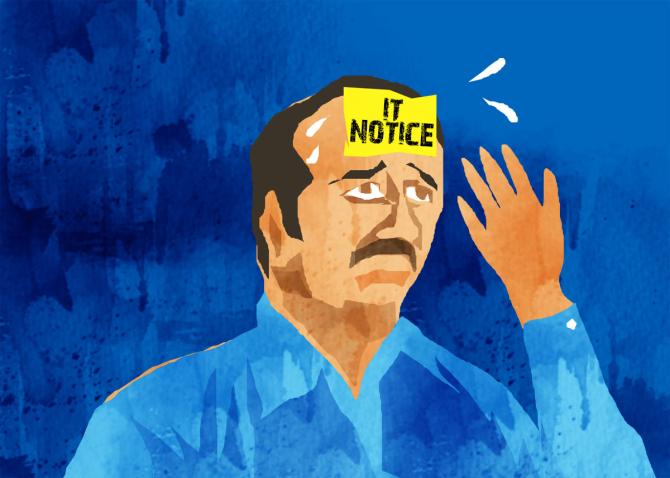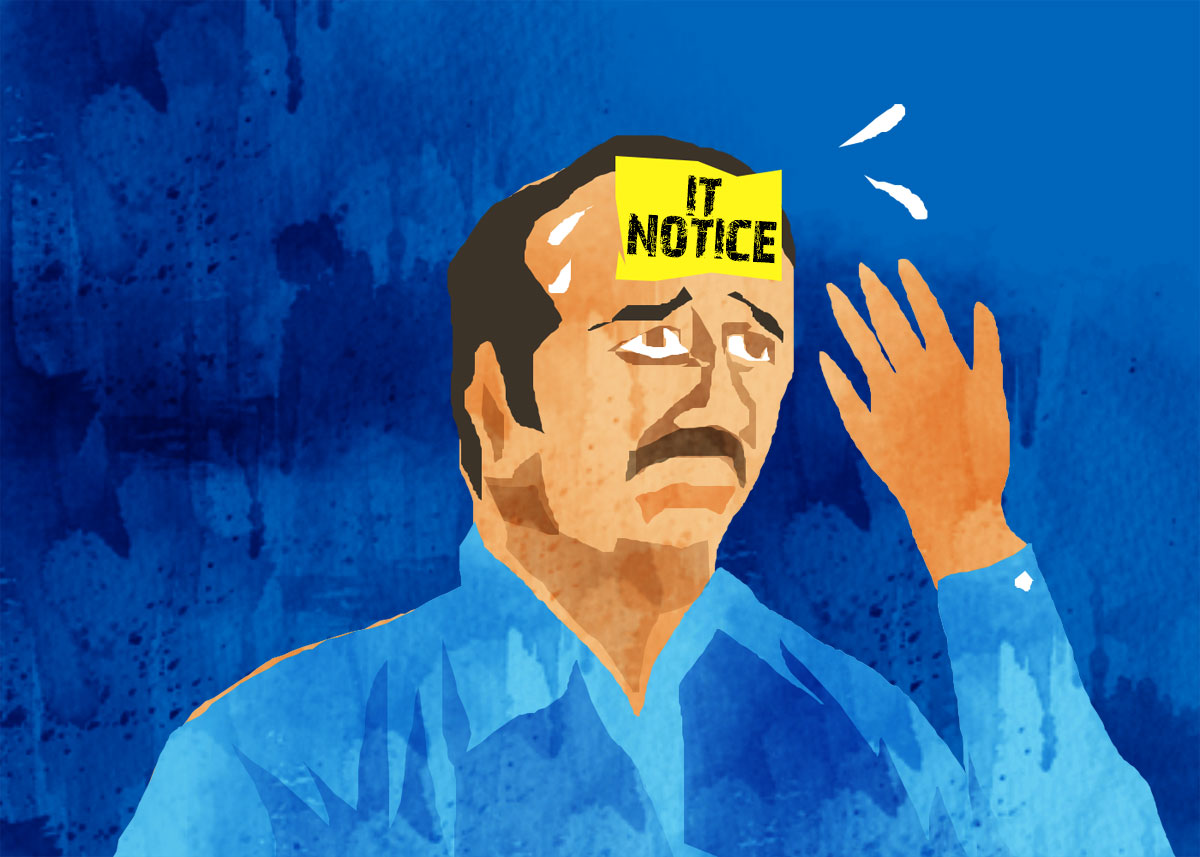‘With new technology and stricter checks, cheating on taxes is just not worth it anymore.’

Illustration: Dominic Xavier/Rediff
Tax experts are cautioning taxpayers against fraudulently claiming large deductions — such as inflated donations to charities, NGOs, or political parties, or exaggerated house rent allowance (HRA) claims — as the income tax (I-T) department has tightened scrutiny of such practices.
In many such cases, the department has levied a penalty of 200 per cent of the unpaid tax, making it a costly mistake for taxpayers, say experts.
“This year, taxpayers should be very careful,” said CA Chetan Daga, founder of AdvantEdge Consulting.
“The government has been following a policy of trust with the taxpayer. Tax returns are now paperless, and people don’t have to attach proof for exemptions and deductions while filing. Also, returns are processed quickly, and refunds come faster,” Daga said.
“But the government’s policy of trusting the taxpayer has kind of backfired due to certain unscrupulous elements abusing the tax system,” Daga added.
For donations, he said the Central Board of Direct Taxes (CBDT) has found cases where money was shown as donated by bank transfer but was actually received back in cash, or donations were simply never made at all.
“This was especially seen in donations to smaller political parties, not the big mainstream ones,” he added.
For HRA, Daga said exemptions were claimed either through unregistered rental agreements or by artificially inflating rent expenses without actually paying the rent.
Tax experts warn that these practices can now be easily caught.
“The tax department has new tools,” said Abhishek Rastogi, founder of Rastogi Chambers.
“They use data from banks, employers, and other places. They also use advanced software and AI to spot anything unusual. Even small claims can be questioned if they don’t match a person’s income or lifestyle,” he added.
The warnings come as the government has given taxpayers more time to file their returns — the deadline is now September 15. But experts say this extra time comes with stricter checks.
Recent data from the tax department shows how serious the crackdown is.
In just the past four months, about 40,000 taxpayers changed their I-T returns and took back fake claims worth Rs 1,045 crore, according to the CBDT.
Tax experts advise people to keep proper documents for any claims they make, like bills for HRA, leave travel concession (LTC) travel tickets, or receipts for donations.
“A fake claim of Rs 10,000 can bring trouble,” said Rastogi, adding: “People may have to pay penalties, interest, or even face court cases in serious matters.”
If the department finds a false claim, the taxpayer may have to pay tax on the amount of the disallowed claim, plus interest of 1 per cent per month until the tax is paid.
On top of that, there can be a penalty of 50 per cent to 200 per cent of the tax wrongly avoided — fake claims attract a penalty of 200 per cent.
The CBDT has warned taxpayers to not trust agents who promise big refunds through false claims, and to file honest returns.
“With new technology and stricter checks, cheating on taxes is just not worth it anymore. It’s safer to file clean and honest returns,” Daga said.

Feature Presentation: Aslam Hunani/Rediff




